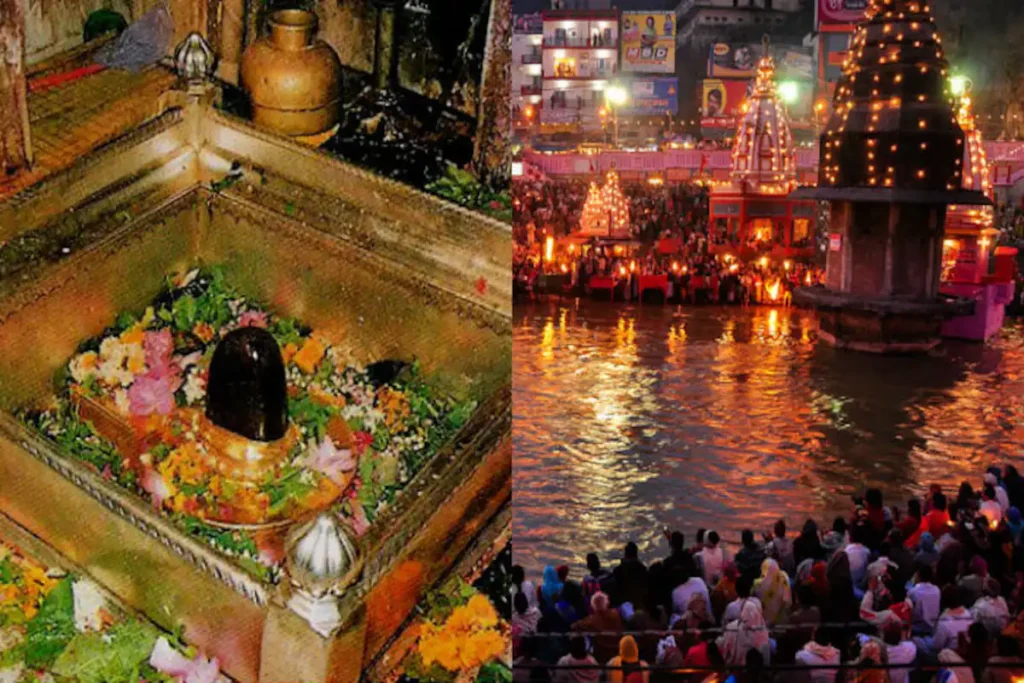
The Kashi Vishwanath Temple, located in the ancient city of Varanasi (Kashi) in Uttar Pradesh, stands as a beacon of spirituality and devotion in Hinduism. Revered as one of the most sacred temples dedicated to Lord Shiva, it holds a central place in the hearts of millions of devotees worldwide. Let’s explore the historical richness, architectural splendor, and spiritual significance of this iconic temple.
Historical Significance
The history of the Kashi Vishwanath Temple is intertwined with the rich tapestry of Varanasi, one of the oldest living cities in the world. It is believed to have been originally built by the legendary king Vikramaditya of the Gupta Empire around the 5th century BCE. Over the centuries, the temple has undergone several renovations and rebuildings due to various invasions and destructions.
The temple holds immense religious significance as it is believed to be one of the twelve Jyotirlingas, representing a manifestation of Lord Shiva’s cosmic light. It is said that a visit to the Kashi Vishwanath Temple and a dip in the holy Ganges River wash away all sins and lead to moksha (liberation) according to Hindu beliefs.
Architectural Marvel
The Kashi Vishwanath Temple is a splendid example of Hindu architecture, with its towering spires (shikharas), intricate carvings, and sanctum sanctorum housing the sacred Jyotirlinga. The temple complex includes smaller shrines dedicated to other deities such as Lord Ganesha, Goddess Parvati, and Nandi, the divine bull.
The main shrine faces east towards the river Ganges, symbolizing the spiritual connection between the temple and the sacred river. The temple’s interior is adorned with marble floors, silver-plated doors, and walls embellished with intricate designs, creating a serene and divine ambiance for devotees.
Spiritual Significance
Varanasi, often referred to as the spiritual capital of India, holds deep spiritual significance for Hindus. The Kashi Vishwanath Temple is considered the pinnacle of spiritual energy in Varanasi, attracting pilgrims and seekers from all corners of the world. Devotees believe that offering prayers and performing rituals at the temple can fulfill their wishes and bring blessings from Lord Shiva.
The temple is renowned for its daily rituals, including the Mangala Aarti (morning prayer), Bhog Aarti (offering of food), and Shringar Aarti (decoration ceremony). These rituals are performed with great devotion and precision, accompanied by chanting of Vedic hymns and bhajans, creating an atmosphere charged with divine grace.
Festivals and Rituals
The Kashi Vishwanath Temple celebrates numerous festivals throughout the year, with Maha Shivaratri being the most prominent. During this festival, the temple is adorned with flowers, lights, and decorations, and devotees offer special prayers and perform abhishekams (ritual baths) of the Shiva Linga.
Other festivals such as Navratri, Deepavali, and Kartik Purnima are also celebrated with great enthusiasm. Each festival is marked by elaborate rituals, processions, cultural performances, and the participation of devotees in large numbers, creating a vibrant and spiritually uplifting atmosphere.
Visiting Kashi Vishwanath Temple
Best Time to Visit: The temple is open throughout the year. However, the best time to visit Varanasi and the Kashi Vishwanath Temple is during the winter months (October to March) when the weather is pleasant.
Accommodation: Varanasi offers a wide range of accommodation options, including budget guesthouses, mid-range hotels, and luxury resorts. It is advisable to book accommodation in advance, especially during peak tourist seasons and festivals.
Travel Tips:
- Dress modestly and respectfully while visiting the temple.
- Photography is restricted inside the main sanctum sanctorum.
- Respect local customs and traditions, such as removing footwear before entering the temple premises.
Nearby Attractions:
- Dashashwamedh Ghat: One of the oldest and most prominent ghats on the Ganges River, famous for its evening Ganga Aarti ceremony.
- Sarnath: A significant Buddhist pilgrimage site where Lord Buddha delivered his first sermon.
- Ramnagar Fort: A historic fort and palace located on the eastern bank of the Ganges River.
The Kashi Vishwanath Temple in Varanasi is not just a temple; it is a spiritual journey that transcends time and connects devotees with the divine presence of Lord Shiva. Its historical legacy, architectural beauty, and profound spiritual significance make it a must-visit destination for pilgrims and travelers seeking spiritual enlightenment and cultural immersion. Visiting the Kashi Vishwanath Temple is an opportunity to experience the timeless tradition of devotion and witness the eternal essence of Hindu spirituality in the heart of Varanasi, the city of lights and liberation.